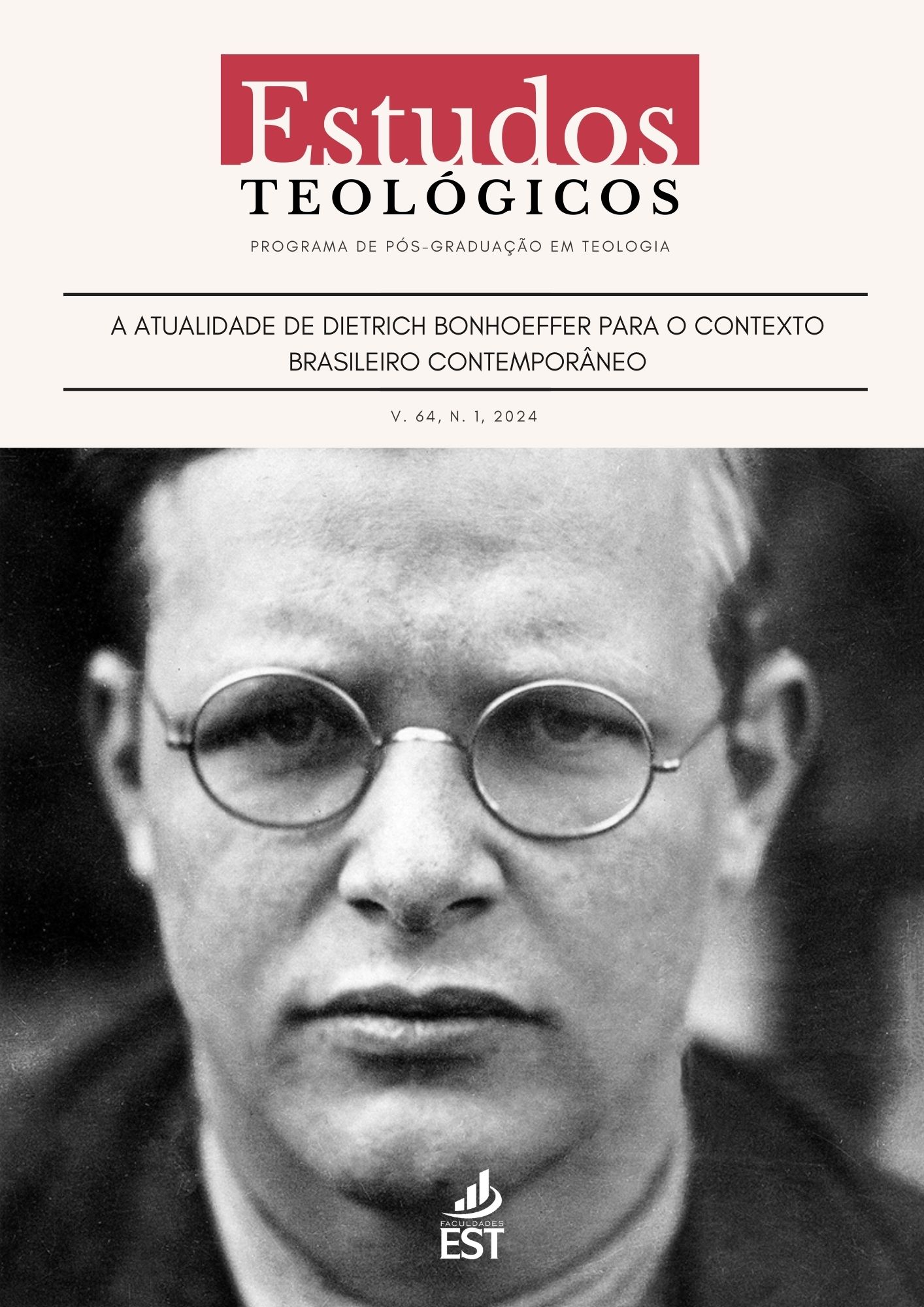A formação do livro de Números no contexto da composição pós-exílica do Pentateuco
DOI:
https://doi.org/10.22351/et.v64i1.898Palavras-chave:
Composição do Pentateuco, Números, Fortschreibung, Triateuco, Hipótese DocumentáriaResumo
Esse artigo objetiva analisar a formação do livro de Números no contexto pós-exílio da composição do Pentateuco. Foi discutida a existência e coerência literária de um Triateuco de organização sacerdotal, cujo final era Lv 26, o qual estabelece relações literárias com textos precedentes e com o Deuteronômio. Então, analisamos a formação de Números pelas teorias que o posicionam próximo da redação final do Pentateuco, como ponte entre Gênesis–Levítico e Deuteronômio e entre a teologia sacerdotal e deuteronomista. A formação do livro compreende sucessivas redações suplementares aos textos existentes, com adaptações e comentários, o que é conhecido como Fortschreibung. Esse modelo tem implicações na pesquisa em Números. A busca pelo sentido do texto deve ser feita investigando a construção ideológica e teológica que está na base dos projetos literário-teológicos no período persa. Literariamente, o livro de Números deve apresentar conexões temáticas e estruturais com textos de Gênesis–Levítico e do Deuteronômio/História Deuteronomista. Isso demanda teorias explicativas sobre como esses materiais foram agrupados, justapostos e interpretados, uma vez que o processo redacional e editorial certamente não foi o mesmo que o do Triateuco e do Deuteronômio.
Downloads
Publicado
Como Citar
Edição
Seção
Licença
Copyright (c) 2024 Estudos Teológicos

Este trabalho está licenciado sob uma licença Creative Commons Attribution-NonCommercial 4.0 International License.
Política de Acesso Livre
A Revista Estudos Teológicos é de acesso livre, o que significa que todo o conteúdo está disponível gratuitamente, sem custos para o usuário ou sua instituição. Os leitores podem ler, baixar, copiar, distribuir, imprimir e compartilhar os links para os textos completos dos artigos, desde que com a devida atribuição de autoria e fonte original, conforme a licença abaixo.
LICENÇA CREATIVE COMMONS
Esta obra está licenciada sob uma Licença Creative Commons Atribuição-NãoComercial 4.0 Internacional (CC BY-NC 4.0).












